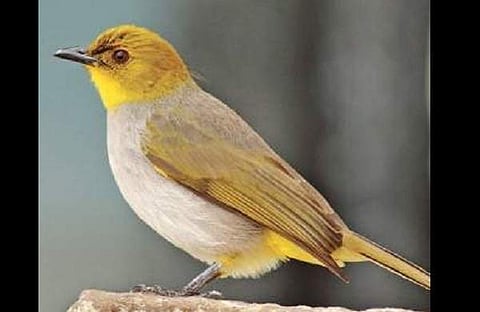

HYDERABAD: If the governments of Telangana and other south Indian States do not take serious measures to conserve the yellow-throated bulbul (Pycnonotus xantholaemus), the rare avian species might soon become extinct. The main culprit would be unregulated granite quarrying. Researchers from the Hyderabad-based Laboratory for the Conservation of Endangered Species
(LaCONES) of the Centre for Cellular and Molecular Biology (CCMB) have been working on conservation of this rare bird. In their recently-published paper, LaCONES researchers reported that the extent of the bird’s range in the Deccan Peninsula might not be more than seven per cent of the geographical region. What has become a cause of concern is that of this small geographic expanse, only about 10 per cent falls under protected areas like sanctuaries and national parks.
The researchers report that almost 80 per cent of the bird’s habitat is fragments of less-than-five-square-km patches, which points to a greater risk of habitats being completely destroyed. The yellow-throated bulbul is endemic to the Deccan Peninsula region, which means it is not found anywhere else in the world. It has already been listed as a ‘vulnerable’ species by the International Union for Conservation of Nature (IUCN).
Based on their field surveys, the researchers observed that the habitat of the yellow-throated bulbul usually consists of rock formations with water seepage, because such regions provide a good source of water, vegetation and food in the Deccan Peninsula, which is dominated by a hot and dry landscape. The LaCONES researchers have also reported that the rare bird might also have a habitat in the northern, northeastern and southwestern Western Ghats, which might not have been explored yet by birders.